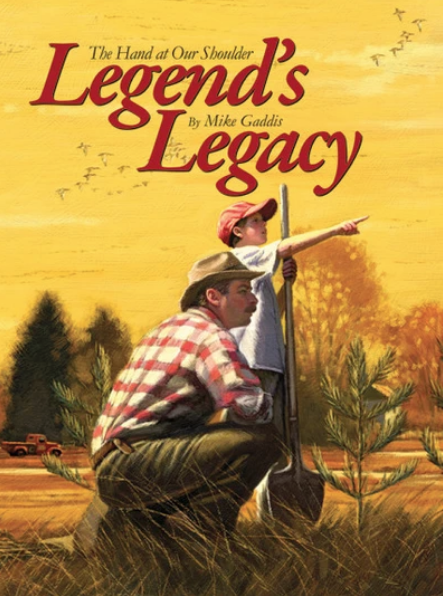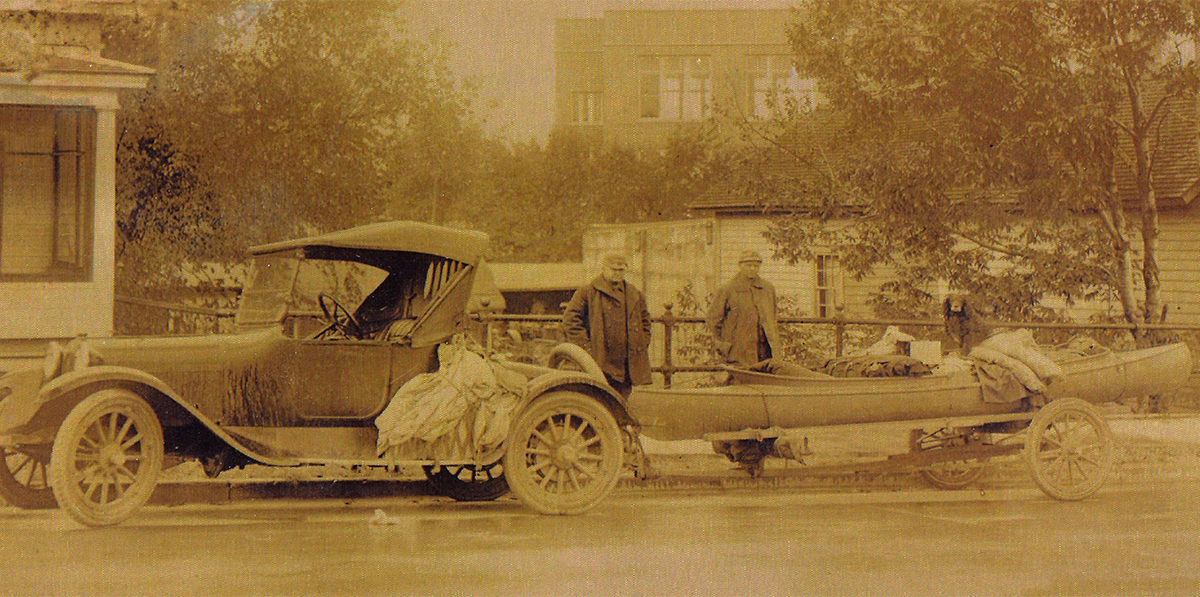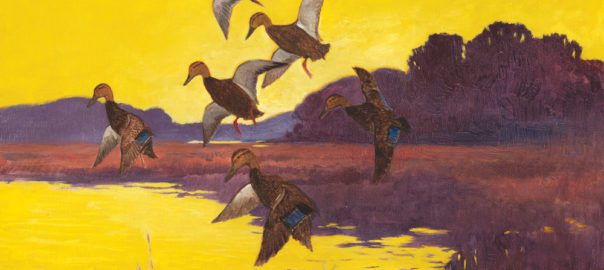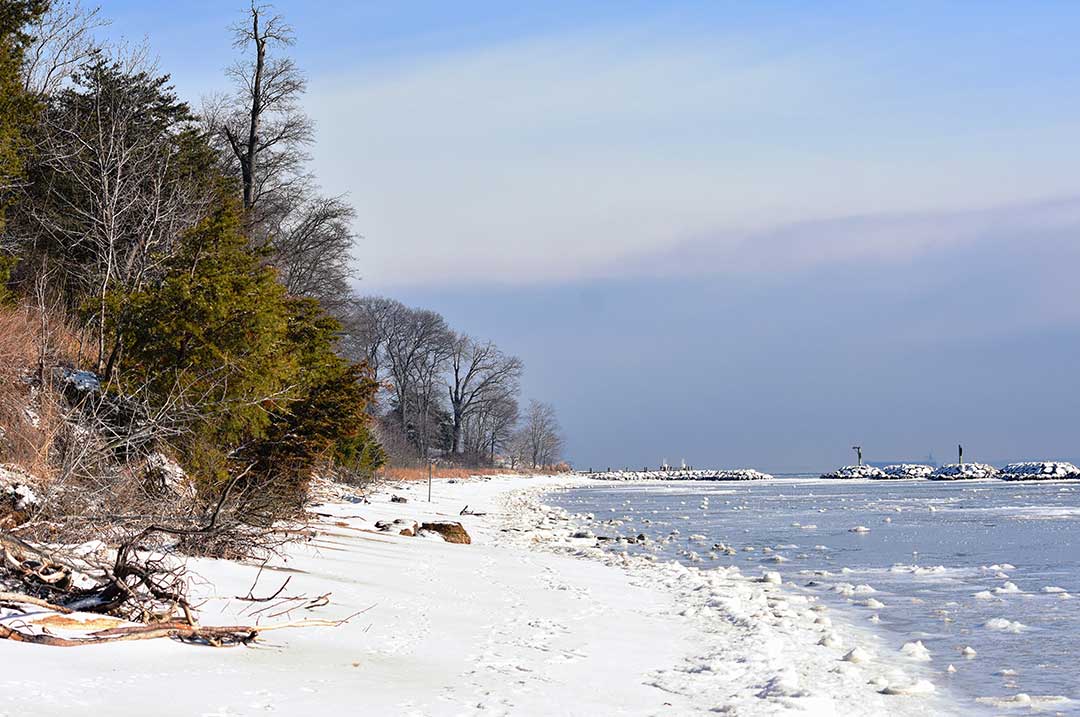I simply had to find out more about my great-great-grandfather. And if this was his duck skiff, well, it was coming home.
The unfamiliar voice on the phone took me by surprise.
“I have a duck boat that belonged to one of your ancestors,” the stranger declared. “And I’m wondering if you are interested in having it back in your family.”
The caller, Rick Hawkinson of International Falls, Minnesota, explained that he had found a vintage duck skiff at a local yard sale, which he acquired as part of a deal for an antique outboard motor. Hawkinson collects old boat motors but had no use for the duck boat.
However, he noticed a rectangular bronze plate nailed to the top of the 13-foot-long wooden craft. Hawkinson gently cleaned the tarnish to see if he could read any of the lettering on the tag. It read, “J.M. Wait, Clintonville, Wis., 1908.”
Like many folks who collect antiques, Hawkinson enjoys probing history. He looked up the surname “Wait” in Clintonville, Wisconsin, which led him to my uncle, Sam Wait, who owns an auto dealership there. My uncle, in turn, informed Hawkinson that his nephew is a duck hunter who works for Delta Waterfowl.
And thus, the journey to reunite a duck boat with the family who had owned it generations ago was set in motion.
My Great-Great-Grandpa
Before Hawkinson called me, I knew next to nothing about “J.M. Wait.”
Judd Martin Wait was my great-great-grandfather. Some quick research revealed he was born in 1861 and died in 1938. I found out that he lived in Clintonville, which made sense because my grandparents and parents are also from that small east-central Wisconsin city.
Still, I wasn’t sure that the man on the phone, in fact, possessed a duck boat that once belonged to my ancestor. So after I hung up with Hawkinson, I called my uncle.
“Oh, I’m sure it is his boat,” Sam told me. “Judd was a serious duck hunter. I’ve seen old pictures of him with his duck boat.”
I have always known that I descended from a long line of hunters, but I was thrilled at the idea that my turn-of-the 20th century lineage included a man known for his love of duck hunting.
So, I simply had to find out more about my great-great-grandfather. And if this was his duck skiff, well, it was coming home.
Digging Deeper
Hawkinson emailed several photos of the boat, which I forwarded to my dad. Later that day, my father called me. He, too, confirmed that Judd Wait was a duck hunter.
“How do you suppose that boat ended up in northern Minnesota?” I asked.
“I believe he moved up there late in his life to be a property caretaker for Doc Finney,” Dad said. “I know there’s a picture somewhere of Doc and Judd standing with a duck boat. I think it’s this boat.”
My father was referring to the photo that accompanies this article. Judd Wait is the man on the right. The man on the left is Dr. William H. Finney, the city physician of Clintonville when this image was taken. Judging by the Ford Model T automobile, the photo dates to somewhere near 1920, give or take a few years.
My research revealed the Wait and Finney families both homesteaded in Clintonville in the mid-1800s, and each was formerly of Medina County, Ohio. William Finney’s father, Dr. John Finney, was Clintonville’s first mayor, elected in 1887.
Judd Wait “made a successful living in the meat business,” according to one account I found. I’m assuming here, but in those times I’m sure the town doctor knew the town butcher. In my great-great-grandfather’s case, they clearly spent time in pursuit of waterfowl, too. I’m also assuming the men were friends, and the pursuit of ducks was important to them. In that era, to have a photo made was a very intentional undertaking. Only photographers who earned a living taking pictures owned a camera capable of producing such a quality photo.
The dog in the picture—Judd Wait’s retriever—is also of great interest to me. I’m nearly positive it is an American water spaniel, an uncommon breed founded in New London, Wisconsin, which is only 17 miles south of Clintonville.
And what about that boat?
A perfect match. Hawkinson had Judd Wait’s duck boat.
Bringing Her Home
I called Hawkinson and made arrangements. A week later he delivered the skiff to a friend’s house in Fargo, North Dakota.
On a rainy, late fall weekend—fittingly duck weather—my father and I made a 12-hour trek across Wisconsin and Minnesota to retrieve the skiff.
We found that the old canvas-covered hull was made well and remains in remarkable shape for a boat more than 100 years old. We examined her closely but found no other identifying tags or maker’s marks. The outer shell is cracked and peeling a bit, and the wood is worn, but she’s still sturdy.
I doubt we’ll ever float her. But now my great-great-grandfather’s boat has become an important part of my heritage as a duck hunter. And she’s back home.
Editor’s note: Paul Wait is editor and publisher of Delta Waterfowl. Joining Delta in supporting conservation is easy; there’s a membership option for any income level. Click here to sign up now!
 There were moments of infinite beauty and sharing, when someone laid a hand at our shoulder and led us there. So that later we might lead another, in turn.
There were moments of infinite beauty and sharing, when someone laid a hand at our shoulder and led us there. So that later we might lead another, in turn.
Here, in parables of incomparable warmth and intonation, the author of the celebrated books Jenny Willow and Zip Zap, Mike Gaddis, explores the enchanting realm of outdoor mentorship. Not only in kind and gentle remembrances, but in intuitive vignettes, present and future.
Legend’s Legacy stands unparalleled as an affecting commemoration of the most endearing aspects of our sporting traditions—an inspiring tribute to those who cared, who taught us then and guide us still. Buy Now




